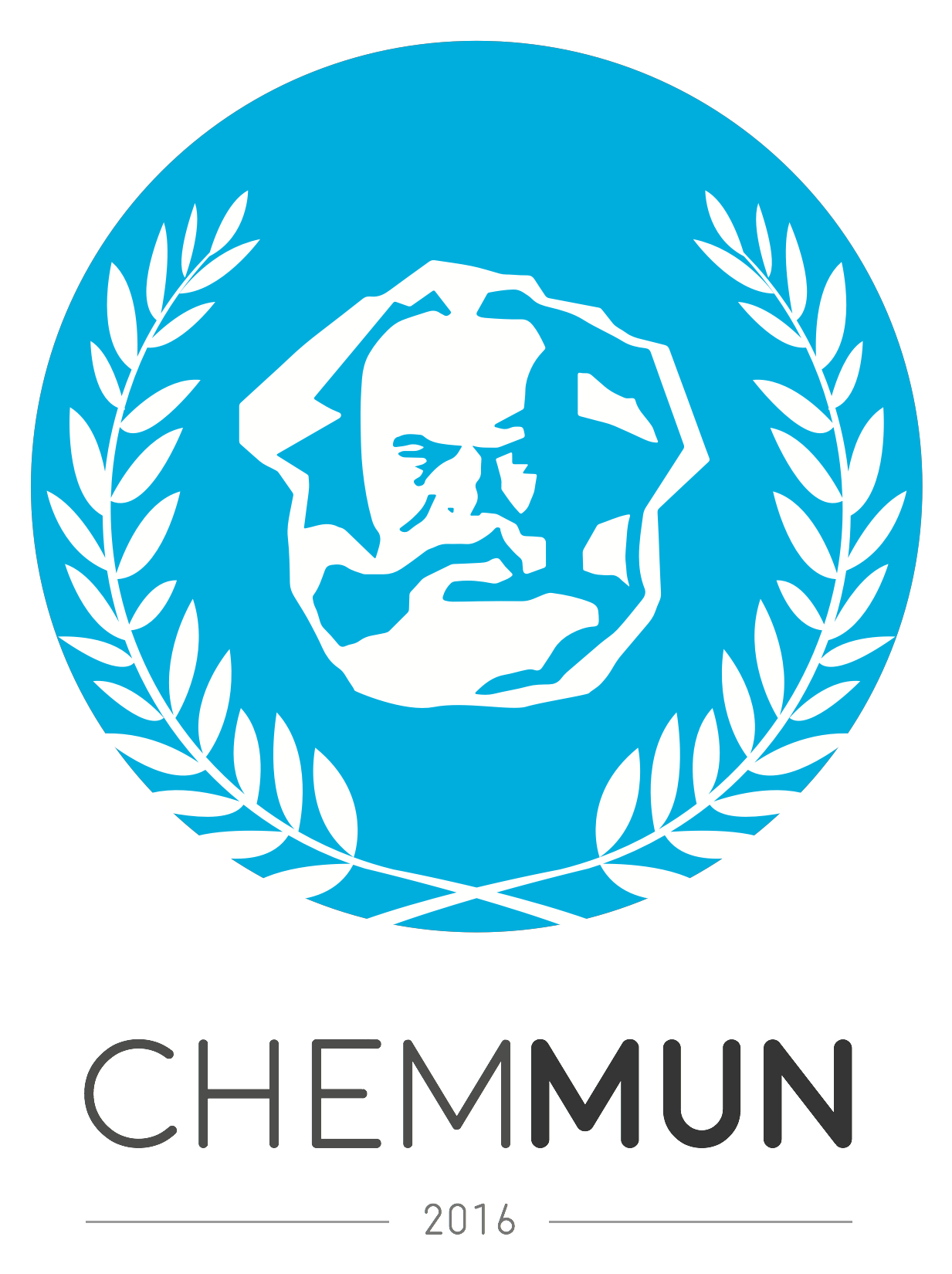Security Council
Level: Intermediate/Advanced
Number of Delegates: 15
Topic 1: A Threat to International Peace and Security – Boko Haram
Topic 2: Crisis
Chairs: Vanessa Rock and Sebastian Pape
The United Nations Security Council
The Security Council is one of the six main bodies of the United Nations and is considered to be the most powerful of all, as it is the only one enabled to pass resolutions that are binding according to international law. Equipped with this authority its main task is the maintenance of international peace and security, as the name implies.
The Council consists of 15 seats which are taken by five permanent members and ten non-permanent members. The Permanent Five members (also called the “Big Five” or “P5”) are China, France, Russia, the United Kingdom and the United States. Each of them can prevent any resolution from being passed by voting against it, as resolution needs the approval of all of the permanent members. This means, permanent members are given a veto right. The non-permanent members are elected on a regional basis for a duration of two years. Every year, five of the then non-permanent members are being replaced. Although the presidency rotates monthly among the member states, usually neutral chairpersons are chosen to lead the debates in MUN conferences.
The legal basis for the actions of the Security Council can be found in the UN Charter. Chapter Five contains the composition and procedure of the council, whereas chapters’ six to eight deal with substantial matters. Special focus lies on Chapter Seven “Action with Respect to Threads to the Peace, Breaches of the Peace, and Acts of Aggression”. If, and only if the Security Council passes a resolution under Chapter seven of the Charta, the United Nations consider a conflict to require common actions with force. Thus, military interventions are only legitimate according to international law, if it is based on such a resolution.
A Threat to International Peace and Security – Boko Haram
Jama'atu Ahlis Sunna Lidda'awati Wal-Jihad is an Islamist militant group. The title loosely translates to “people committed to the propagation of the Prophet’s teachings and jihad”; Boko Haram, the title the group is generally known for, translates informally to “Western Education is a Sin”.
The group is primarily active in the North of Nigeria. The government of Nigeria, at first, suspected there to be ties between Boko Haram and al-Qaeda. It is now known that in March 2015, the current leader of Boko Haram Bubakar Shekau pledged allegiance to ISIL.
Before 2009, the group was not actively pursuing to overthrow the government through the use of violence; however, clashes between Christians and Muslims radicalized it. In the first stages of Boko Haram’s existence, dating back to the early 2000s, the group gained attraction within a society of various ethnic and religious backgrounds, poverty, and unemployment. On July 26th, 2009 it attacked the city Bauchi; more than 50 people died. Two days later the group’s former leader Yusuf was shot dead while being held in detention by the police. Since 2014, Boko Haram has gained international attention, mostly due to violent attacks on schools, suicide attacks and the kidnapping especially of young girls and women.
The Nigerian government, though relying primarily on its own military, has been working together with its neighbouring countries, the African Union (AU) and the UN Security Council (UNSC) to tackle the issue. The MNJTF authorized by the UNSC and AU at the beginning of this year is mandated to deploy troops alongside Nigeria’s outside borders, the aim being to contain Boko Haram’s territorial expansion.
This Committee will discuss how to take on the challenge to peace and security posed by Boko Haram, and how to further cooperate to combat the militant’s acts of terror.
Crisis
Lorem ipsum dolor sit amet, consetetur sadipscing elitr, sed diam nonumy eirmod tempor invidunt ut labore et dolore magna aliquyam erat, sed diam voluptua. At vero eos et accusam et justo duo dolores et ea rebum. Stet clita kasd gubergren, no sea takimata sanctus est Lorem ipsum dolor sit amet. Lorem ipsum dolor sit amet, consetetur sadipscing elitr, sed diam nonumy eirmod tempor invidunt ut labore et dolore magna aliquyam erat, sed diam voluptua. At vero eos et accusam et justo duo dolores et ea rebum. Stet clita kasd gubergren, no sea takimata sanctus est Lorem ipsum dolor sit amet. Lorem ipsum dolor sit amet, consetetur sadipscing elitr, sed diam nonumy eirmod tempor invidunt ut labore et dolore magna aliquyam erat, sed diam voluptua. At vero eos et accusam et justo duo dolores et ea rebum. Stet clita kasd gubergren, no sea takimata sanctus est Lorem ipsum dolor sit amet.
The Chairs
Vanessa Rock
My name is Vanessa Rock and I am in my fourth year studying European and Comparative Law in Bremen. Born and raised in Berlin, I finished High School in 2012. Since 2008, I was given the opportunity to attend various MUN Conferences as a member of a delegation representing various countries in various Committees and as the member of the organizational team of the GLOMUN 2011 and ElbMUN 2014, serving as a chair. I have always felt strongly about the concept of participation – not only to encourage people to make up their own mind about an issue, but also to give them the opportunity to speak up, to raise their voice and to enable them to work within given constellations. Having said all this, I can only add that it is my great pleasure to be part of this years’ ChemMUN and to help making this Conference the best it can be.
Sincerely, Vanessa Rock
Sebastian Pape
Chairing the Security Council is always a special and challenging task and I am honoured to be part of the presidency in the ChemMUN 2016 Security Council. In the past I have taken part in MUN conferences in Bremen, Dresden, Flensburg, Frankfurt (Oder), Göttingen and Kraków, Poland both as delegate and chairperson. Over time I have encountered impressive characters of the MUN world and I am excited to meet some of them in Chemnitz and work together with them.
Although the issues that are being discussed in the Sessions of the Security Council are serious matters, it will be important to laugh together from time to time in order to have a successful conference which will remain as a joyful memory in our minds. Therefore, humour will be the strongest of all our weapons, if applied at the right time and in the right dose.




